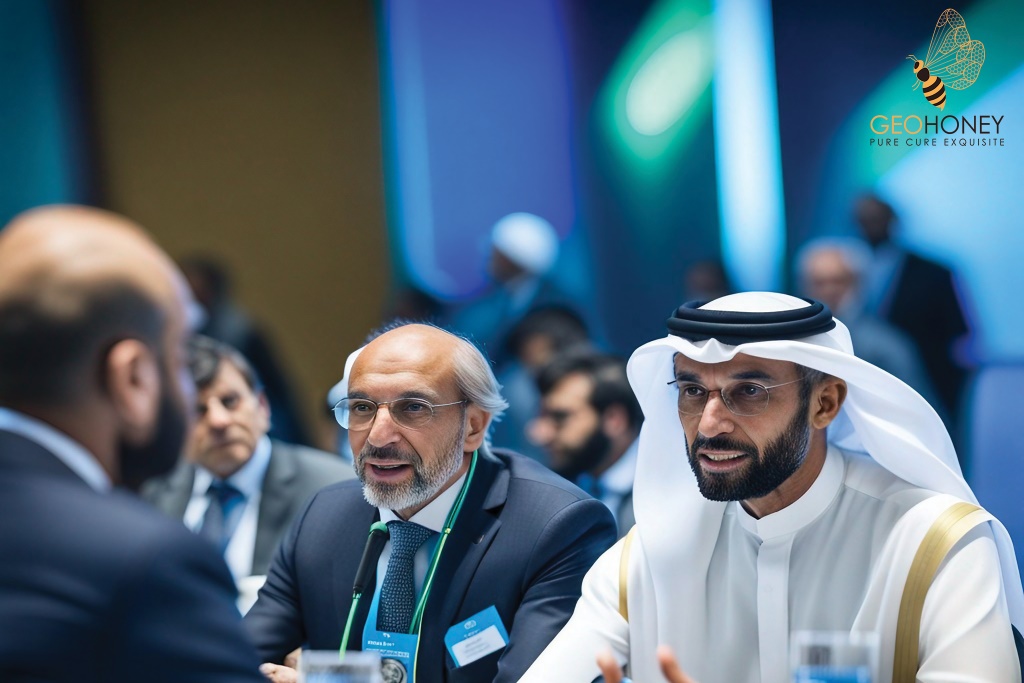- Tokyo: 14:50
- Singapore: 13:50
- Dubai: 09:50
- London: 05:50
- New York: 00:50
COP28 and the IEA Chart a Course Towards a 1.5C Degree Energy Transformation

The UAE Presidency of COP28 and the International Energy Agency (IEA) hosted the first of a series of high-level discussions in the run-up to COP28 to discuss how to establish a 1.5°C-aligned energy transition.
The programme will be carried out in conjunction with the International Renewable Energy Agency (IRENA) and with the backing of the United Nations Framework Convention on Climate Change (UNFCCC). The conversations are intended to foster agreement on 1.5°C-compatible energy transition routes and the enabling conditions required to achieve them, as well as momentum around the COP28 energy outcomes.
The meetings are co-chaired by COP28 President-elect Sultan Al Jaber and IEA Executive Director Fatih Birol. The goal is to bring together energy industry decision-makers from the public and private sectors to provide a holistic, global vision of the energy system. The conversations will lay the groundwork for concrete commitments and calls to action at COP28's World Climate Action Summit.
The discussion took place on the fringes of the 14th Clean Energy Ministerial and the G20 Energy Transitions Ministerial Meeting in Goa, India, on July 21. Various country delegates and private sector representatives attended the gathering.
Speaking on the relevance of the initiative, Sultan Al Jaber emphasised COP28's critical role as a chance for global collaboration and decisive action in realising the Paris Agreement's objectives. He emphasised the necessity of collaborative efforts, emphasising that meeting the 1.5-degree Celsius objective requires all stakeholders, including the energy business, to actively participate in designing a new energy system.
Fatih Birol, Executive Director of the International Energy Agency, praised the IEA's comprehensive energy package, which outlines critical strategies such as tripling global renewables capacity, doubling energy efficiency progress, reducing emissions from the oil and gas sector, augmenting clean energy finance for developing economies, redirecting fossil fuel investments to cleaner alternatives, and significantly reducing fossil fuel demand.
In parallel, IRENA Director-General Francesco La Camera emphasised the importance of a renewables-based energy transition and the need to treble annual renewable energy additions to effectively limit global warming to 1.5 degrees Celsius. To accomplish this, he emphasised the importance of breaking down systemic barriers in infrastructure, policy, and institutional frameworks.
The IEA and IRENA will present statistics and technical analysis to set the stage for informed debates, and others will be invited as needed. This will discuss the current situation of the global energy landscape, as well as prospective pathways, solutions, and activities needed to expedite the transition in a just and equitable manner.
The UNFCCC Executive Secretary, Simon Steill, expressed hope that these high-level conversations will act as a driving force in accelerating momentum towards an equitable and inclusive 1.5-degree Celsius energy transition. He asked all stakeholders to take decisive action and contribute to achieving the Paris Agreement's vision of a sustainable and climate-resilient future.
Source: livemint.com




Hoping for a better result this time, as they aim one goal, a cleaner energy a better tomorrow and a greener future.